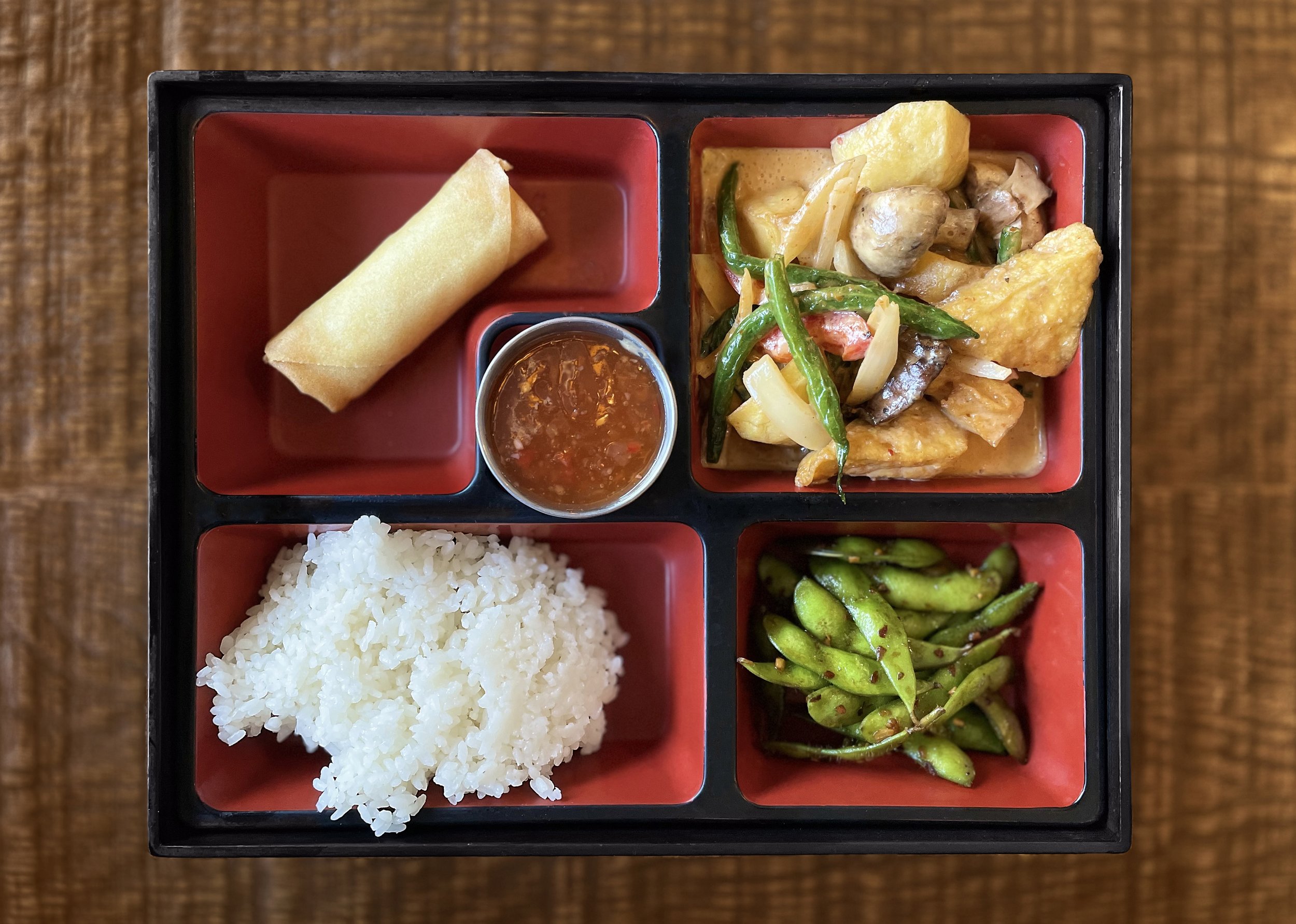Hidden Enemies Part One: Fish Sauce and Shrimp Paste
Ever found a restaurant that you just loved? Perfect vibe, good service, expansive menu, and friendly chefs? We thought we did. We called ahead to ask for specific allergens and to make sure that the dishes we would order were in fact plant-based. When we arrived, we confirmed which dishes we could order with the server and asked her to double check with the chef. We ate, left, and continued to frequent the restaurant when we were in the area.
Then one day we asked for a substitution, and it all fell apart. When we asked if a different curry had fish sauce, she replied that ‘they all did.’ When we asked her to check with the chef, he confirmed it. The owner back-tracked and said that they had recently changed the pre-packaged base of the curry, and we explained that not only was it not vegan, it wasn’t even vegetarian, and if someone with a shell fish allergy had ordered that, there could have been a life-threatening reaction. After that we didn’t hear from the owner again, and never went back.
So, what’s the deal with Fish Sauce and it’s cousin, Shrimp Paste? ...and why is that stuff hidden in so many dishes?
As the popularity of Asian cuisine, particularly Thai dishes, continues to rise, more individuals are exploring these exotic flavors. However, for vegans who are committed to avoiding all animal products, the journey into the world of Asian food can be a challenging one. The primary concern lies in the use of fish sauce and shrimp paste, hidden ingredients that can often be overlooked or dismissed by restaurant servers.
Fish sauce and shrimp paste are the backbone of many traditional Asian dishes, imparting a unique umami and savory taste. These ingredients are commonly used in Thai curries, sambals, dips, and noodle dishes, among others. Unfortunately, the presence of these hidden meat ingredients can pose a significant hurdle for vegans who are trying to adhere to their dietary principles.
Vegans are often left in a difficult position, as servers at some restaurants may not be fully aware of the ingredients used in every dish, or they might not fully comprehend the concept of veganism. Consequently, when asked about the use of fish sauce or shrimp paste, they might mistakenly assure vegans that the dish is safe for their consumption.
What is Fish Sauce and why is it in there anyway?
Fish sauce is a condiment commonly used in Southeast Asian cuisines, particularly in Thai, Vietnamese, Filipino, and Cambodian dishes. It is made by fermenting fish (usually anchovies or other small fish) with salt and water for several months to a year. During the fermentation process, the fish breaks down, and its liquid is collected, resulting in a pungent, savory, and umami-rich sauce. The sauce is dark brown in color and has a strong aroma that might be off putting to some when smelled on its own. However, when used in cooking, it imparts a unique depth of flavor and enhances the taste of various dishes. Fish sauce is a key ingredient in many traditional recipes and can be found in stir-fries, curries, dipping sauces, and noodle dishes. It's often used as a substitute for salt to add a complex umami taste to the food.
…and what about Shrimp paste?
Shrimp paste, also known as shrimp sauce or belacan, is a condiment commonly used in Asian cuisine, particularly in Southeast Asian countries like Malaysia, Indonesia, Thailand, Vietnam, and the Philippines. It is made by fermenting ground shrimp with salt and then sun-drying the mixture, resulting in a thick, pungent, and flavorful paste.
Shrimp paste is believed to have originated in Southeast Asia, where it was developed as a method to preserve surplus seafood. The process of making shrimp paste involves fermenting ground shrimp with salt, allowing it to air-dry, and forming it into a thick paste. This technique allowed people to store shrimp for extended periods, ensuring a stable food supply during times of scarcity.
Historical records suggest that shrimp paste was used in ancient civilizations, such as in the region that is now modern-day Indonesia, as far back as the 9th century. Its use gradually spread to neighboring Southeast Asian countries, including Malaysia, Thailand, Vietnam, and the Philippines.
So how can I be sure that neither of these ingredients are in my dish?
Look up the restaurant's menu online before visiting. Some restaurants may have their menu or specific dietary information available on their website. Check if they offer any vegan or vegetarian options or if they can accommodate dietary restrictions.
Once you are at the restaurant, don't hesitate to ask your server about the ingredients in the dish you are interested in. Politely inquire if the dish contains fish sauce, shrimp paste, or any other animal-derived ingredients.
Clearly communicate that you are vegan or vegetarian and that you want your dish to be free from any animal products, including fish sauce and shrimp paste.
Tell them you have a shellfish allergy, even if you don’t! Be sure your server takes extra precautions to avoid cross-contamination.
Be Cautious with Sauces and Dips, pay attention to sauces and dips that accompany your dish. Some dipping sauces, like Thai Nam Prik or Vietnamese Nuoc Cham, may contain fish sauce.
At the end of the day, you may never get a straight answer. We sure didn’t. Even checking ahead, asking the server, and having them ask the chef, we received different answers on different days. Best advice is to find a restaurant with clearly marked Vegan options and remind them that fish sauce and shrimp paste are not vegan.



